How Often Do Raleigh Water Heaters Need to be Replaced?
Neglecting to maintain your water heater can lead to unexpected hot water shortages, leaving homeowners inconvenienced and potentially at risk. To avoid such situations, it is crucial to give your water heater the attention it deserves. Our expert plumber, specializing in water heater repair and replacement, offers this guide to help you identify the signs that indicate when it's time for a replacement. Additionally, we will explore important factors to consider when purchasing a new water heating system. By following these recommendations, you can guarantee a consistent supply of hot water for your Raleigh household.

How long do water heaters last?
Hot water heaters are an essential part of our everyday routines, as they are responsible for supplying the hot water we need for showering, doing laundry, and washing dishes. However, just like any other household appliance, the lifespan of a hot water heater can be affected by several different factors. On average, most hot water heaters will typically last for a span of 8 to 12 years. It is important to keep these considerations in mind when evaluating the lifespan of your hot water heater.
Tankless water heaters are known for their extended lifespan when compared to traditional water heating units. This longevity is one of the key advantages of tankless systems. These innovative appliances are designed to provide hot water on demand without the need for a storage tank. As a result, they do not suffer from the same wear and tear as conventional water heaters, leading to a longer operational life.
Proper installation and regular maintenance play a crucial role in ensuring the longevity of a water heater. If the installation is not done properly or maintenance is neglected, it can significantly shorten the lifespan of the equipment. Therefore, it is essential to give utmost attention to the installation process and to regularly maintain the water heater to maximize its lifespan.
To ensure that your water heater operates efficiently and lasts for a long time, it is crucial to keep up with regular maintenance and inspections. By taking proactive measures and staying on top of upkeep, you can maximize the performance of your water heater and extend its lifespan.
It is important to consider that using your unit excessively on a daily basis and having high levels of hard water can contribute to the accelerated wear and tear of the unit. This can potentially compromise its long-term effectiveness.

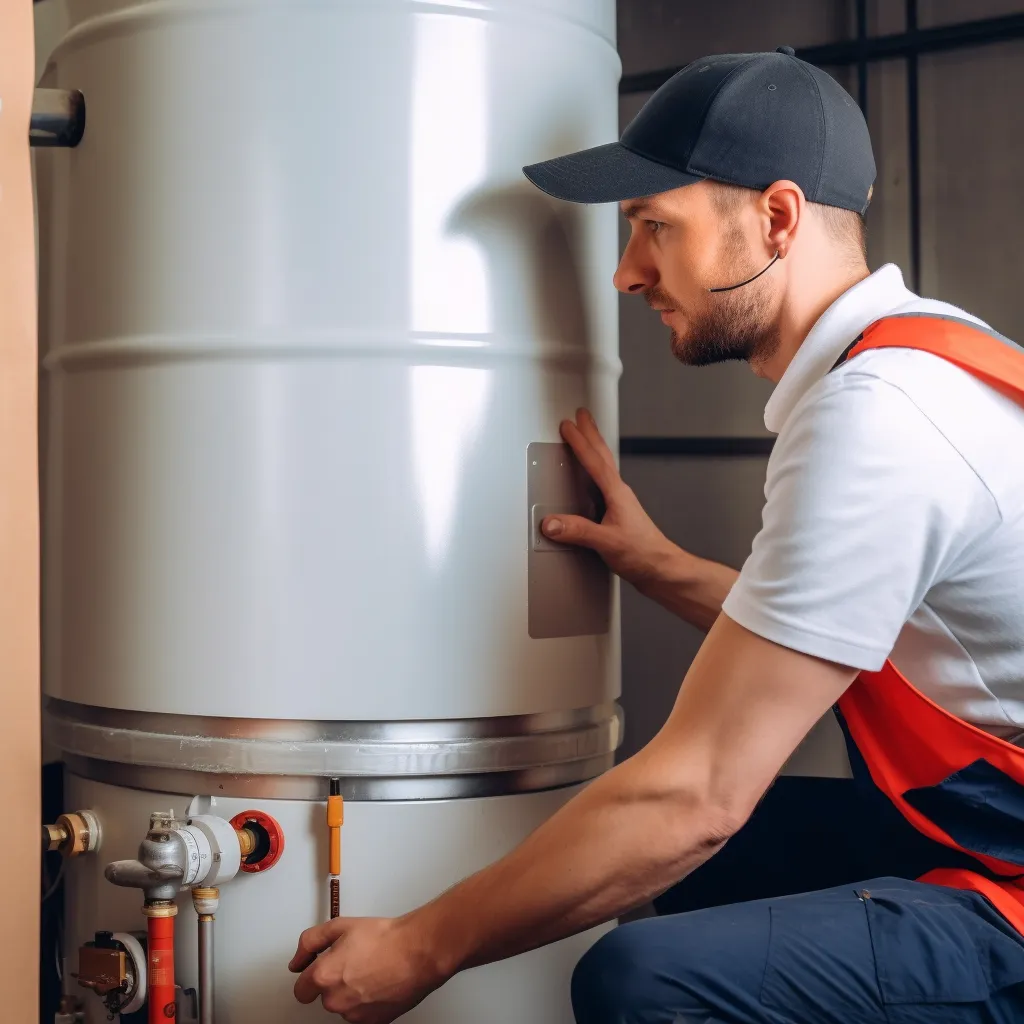
Are you able to allocate funds for a new water heater?
Finding the right water heater for your home and budget can be overwhelming due to the wide range of options available. To make the best decision, consider both your budget limitations and the unique needs of your household. Factors to prioritize include energy efficiency, capacity, and compatibility with your lifestyle. Keep in mind that while some models may have a higher upfront cost, they can ultimately lead to considerable savings on your energy expenses in the long run. It is important to note that investing in a top-quality water heater can result in significant cost savings over time. Therefore, take your time and thoroughly assess all available options before making a final decision.

Replacing a water heater is a significant decision
If you're replacing your water heater, it is crucial to make a well-informed decision. There are several important factors to consider before selecting a new unit, such as efficiency, age, and cost. If your existing water heater is older than ten years or requires frequent repairs, it is a clear sign that it is time to consider upgrading to a more efficient model. By doing so, you can enhance the performance of your water heater and achieve cost savings on your utility bills.

How to extend the lifespan of your water heater
If you want to maximize the lifespan of your water heater, there are several steps you can take. By following these tips, you can ensure that your water heater remains in good working condition for many years to come:
Regular Maintenance: Perform regular maintenance on your water heater to keep it running efficiently. This includes flushing the tank to remove sediment buildup, checking and replacing the sacrificial anode rod, and inspecting the pressure relief valve.
Adjust the Temperature: Lowering the temperature on your water heater can help prevent excessive wear and tear on the unit. It reduces the risk of overheating and also saves energy.
Insulate the Tank: Insulating the tank and pipes helps to reduce heat loss, which in turn reduces the workload on your water heater. A well-insulated tank keeps the water hotter for longer periods and helps the heater to operate more efficiently.
Install Water Softener: If you have hard water, consider installing a water softener to prevent mineral buildup in your water heater. Mineral deposits can damage the heating elements and reduce the efficiency of the unit.
Check the Pressure: Regularly monitor the pressure in your water heater. Excessive pressure can strain the tank and lead to leaks or other issues. Use a pressure gauge to ensure it remains within the recommended range.
Inspect for Leaks: Check your water heater periodically for any signs of leaks. Even small leaks can lead to bigger problems if left unchecked. Promptly repair any leaks to prevent water damage, corrosion, and premature failure of the unit.
Don't Overwork the Heater: Avoid overworking your water heater by spreading out hot water usage throughout the day. This reduces the amount of stress placed on the unit and allows it to operate more efficiently.
Seek Professional Help: If you are unsure about any aspect of water heater maintenance, it is always best to seek professional help. They can provide expert advice and ensure that your water heater remains in top condition.
By implementing these measures, you can extend the lifespan of your water heater and enjoy reliable hot water supply for years to come.
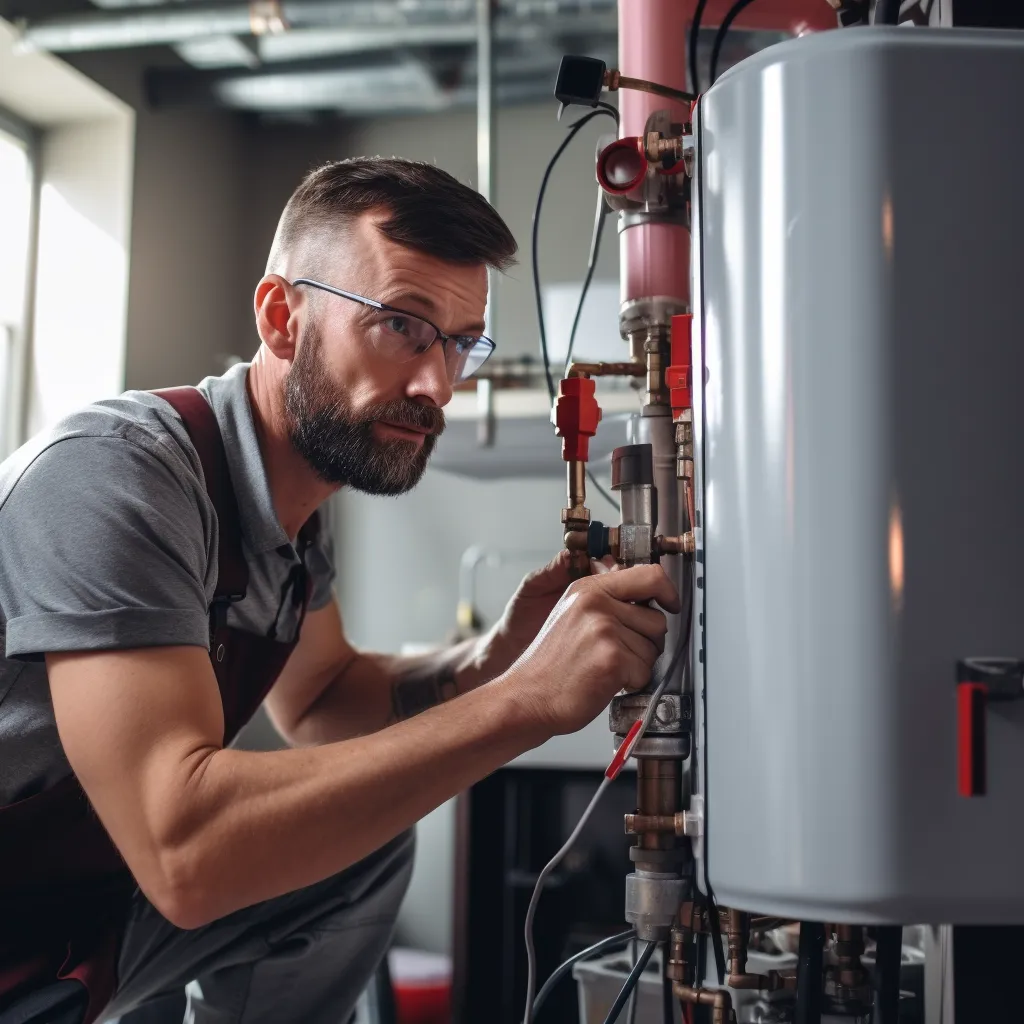
Address any malfunctions
Addressing malfunctions is an essential aspect of maintaining a smooth and efficient operation. By promptly dealing with malfunctions, businesses can minimize disruptions, prevent further damage, and ensure the safety of their employees and customers. Timely intervention can also save costs and uphold the reputation of the company. Promptly addressing malfunctions is crucial for the smooth functioning of any organization. By identifying the root cause, taking immediate action, and maintaining clear communication, businesses can effectively resolve malfunctions while minimizing disruptions and maintaining their operations. Furthermore, implementing preventive measures can help to significantly decrease the occurrence and impact of future malfunctions.
Signs it's time to get a new water heater
There are several signs that indicate it may be time to replace your water heater:
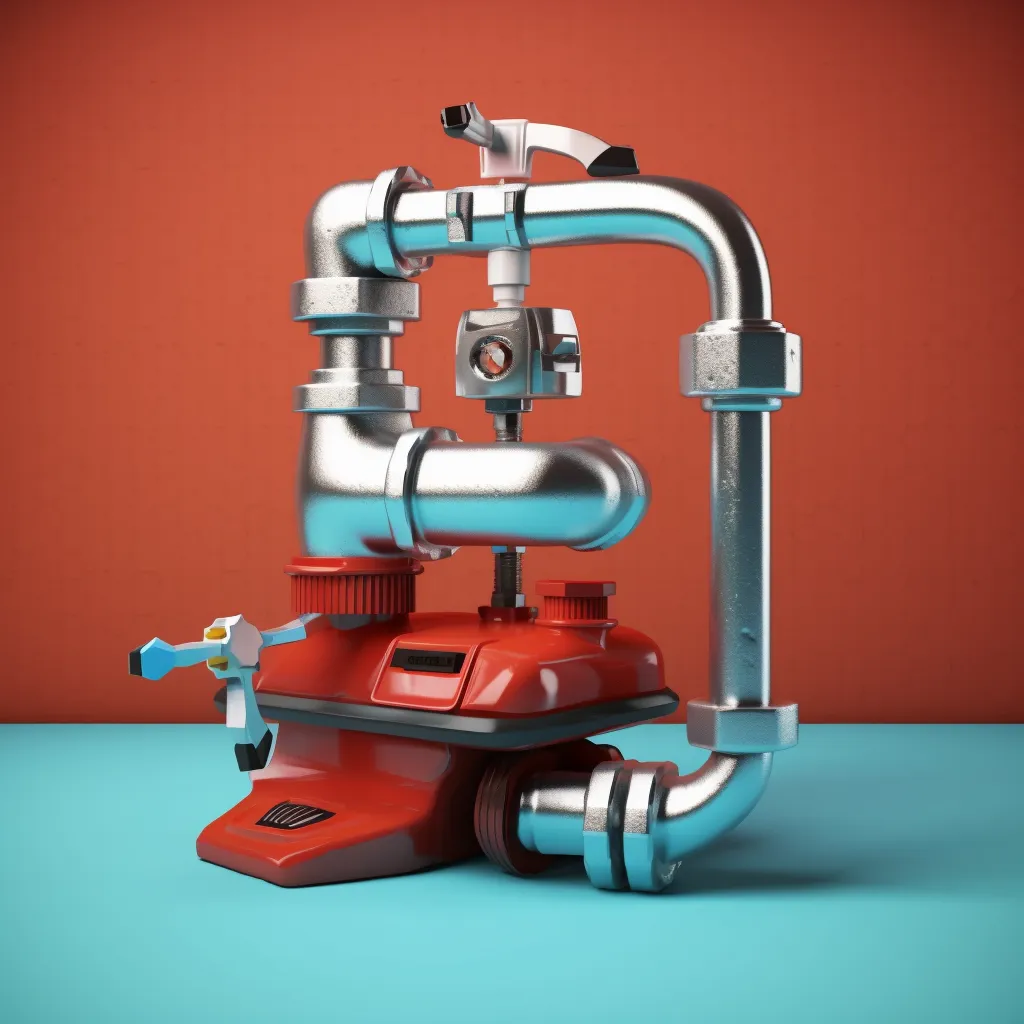
One of the most obvious signs is when the water coming out of your taps is not as hot as it used to be. This could be a sign that the heating element in your water heater is wearing out and no longer able to heat the water to the desired temperature.
Another sign that it's time for a new water heater is if you're constantly running out of hot water. If you find yourself taking shorter showers or having to wait a long time for the water to heat back up after someone else has used it, it may be a sign that your water heater is no longer able to keep up with your demands.
Leaks around your water heater are another indication that it may be time to replace it. Even small leaks can lead to bigger problems down the line, so it's important to address them as soon as possible.
Old age is also a factor to consider. Most water heaters have a lifespan of around 8 to 12 years. If your water heater is nearing or past this age range, it's a good idea to start thinking about replacing it before it fails completely.
Finally, if you notice unusual noises coming from your water heater, such as popping or rumbling sounds, it could mean that sediment has built up inside the tank. This can cause your water heater to become less efficient and can eventually lead to a complete breakdown.
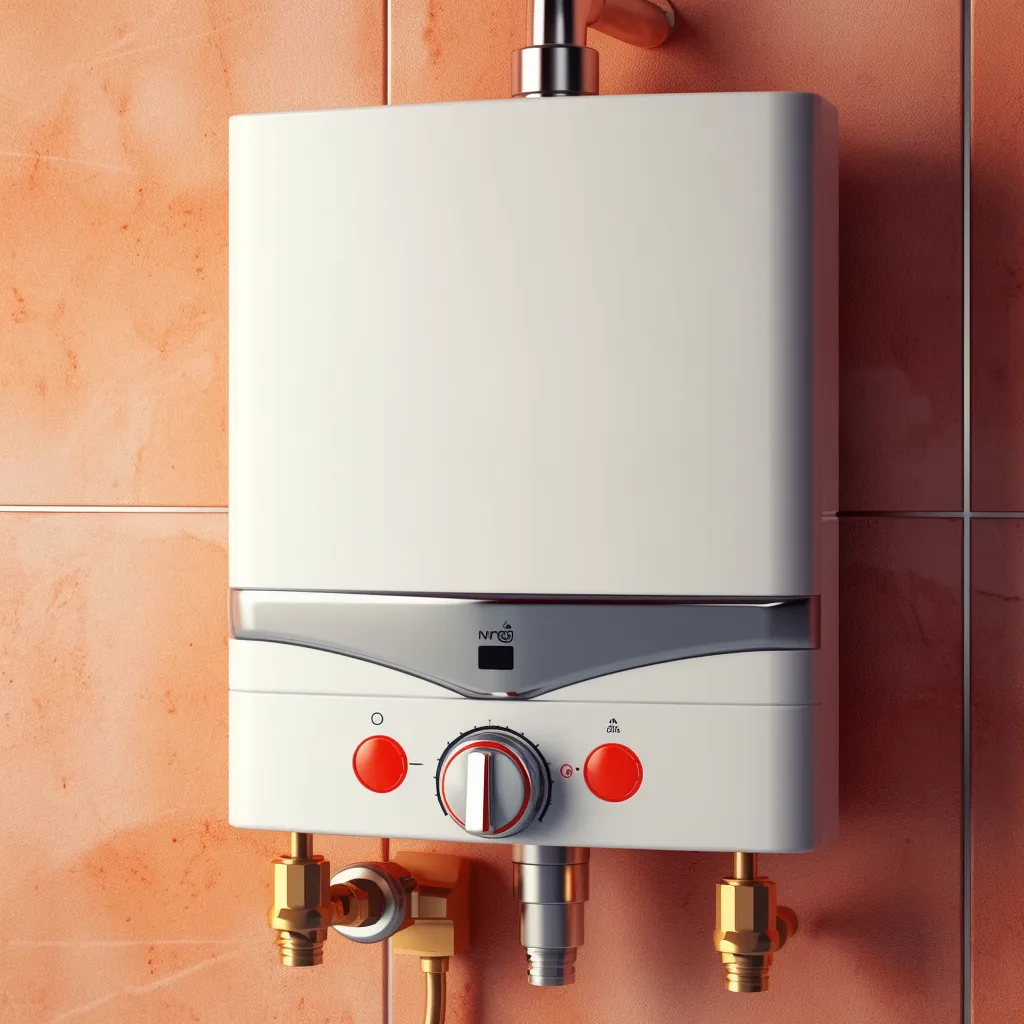
In order to make a well-informed decision about replacing your water heater and ensuring a consistent supply of hot water for your household, it is crucial to pay close attention to these warning signs. By doing so, you will be able to take the necessary steps and address any issues before they become more serious.
What is the cost of replacing a water heater?
There are several key factors that play a role in determining the overall price you can expect to pay. These factors should be taken into consideration when budgeting for a new water heater.
The type of water heater, whether it's a traditional tank-based heater or a tankless unit, will play a role in the overall cost. Tankless units tend to be more expensive upfront, but they can help save money in the long run due to their energy efficiency. On the other hand, traditional tank-based heaters are generally more affordable upfront but may have higher energy costs over time. In addition to the type, the size or capacity of the water heater is also important to consider.
The size of the water heater will depend on your household's hot water demands. A larger household with greater hot water needs will require a bigger water heater, which can be more expensive. Conversely, a smaller household with lower hot water demands can opt for a smaller, more cost-effective water heater.
Energy efficiency is an important consideration when choosing a water heater. Although energy-efficient models may be more expensive initially, they can result in significant long-term savings on energy bills.
Installation requirements play a crucial role in determining the overall cost of the installation process. Several factors, including accessibility, venting requirements, and plumbing modifications, can significantly affect the expenses involved. It is important to consider these aspects when planning for the installation to ensure a smooth and cost-effective process.
Typically, for standard electric water heaters, you can expect to spend anywhere from $500 to $2,500. On the other hand, tankless water heater repair costs can be even higher, ranging from $1,000 to $3,500. Given the significant investment required, it's important to consider the long-term benefits. By opting for a high-quality unit, you can potentially reduce your utility bills and improve energy efficiency, making it a worthwhile investment in the long run.
FAQs about replacing and installing a water heater
When it comes to replacing or installing a water heater, there are some common questions that homeowners often ask. This is understandable, as water heaters are essential appliances and the process of replacing or installing one can seem daunting. Here are some of the frequently asked questions:
What are the signs that my water heater needs to be replaced?
There are a few indicators that your water heater might need to be replaced. These include a decline in hot water temperature, the presence of rust in the water, unusual noises coming from the unit, and water leakage around the tank. If you notice any of these signs, it is recommended to consult a professional to evaluate the situation.
How long does a water heater typically last?
The lifespan of a water heater can vary depending on several factors, such as the type of water heater, usage patterns, and maintenance. On average, a traditional tank water heater can last around 10-12 years, while tankless water heaters have a longer lifespan of about 15-20 years. Regular maintenance can extend the life of your water heater.
Should I replace my water heater myself or hire a professional?
While replacing a water heater might seem like a DIY project, it is recommended to hire a professional plumber for this task. Water heaters involve plumbing and electrical connections, which require expertise and knowledge to ensure proper installation and safety. Professional plumbers have the necessary skills and experience to handle the job efficiently and effectively.
What factors should I consider when choosing a new water heater?
There are a few factors to consider when selecting a new water heater. These include fuel source (electricity, gas, or solar), capacity (based on your household's hot water needs), energy efficiency ratings, and warranty. It is also important to consult a professional to determine the best type and size of water heater that suits your specific requirements.
Are there any maintenance tasks for a water heater?
Yes, regular maintenance is essential to keep your water heater functioning optimally. This includes flushing the tank to remove sediment buildup, testing the pressure relief valve, inspecting for leaks, and checking the thermostat settings. It is recommended to follow the manufacturer's guidelines and have an annual inspection by a professional plumber to ensure proper maintenance.
How to save money when replacing a hot water heater
Replacing a hot water heater can be a significant expense, but there are several ways you can save money during the process. By following these tips, you can minimize costs while still ensuring an efficient and reliable hot water supply for your home.
Compare prices: Before purchasing a new hot water heater, take the time to research and compare prices from various suppliers. Look for discounts, promotions, or special offers that can help you save money. Additionally, consider both the upfront cost and long-term savings of different types of heaters, such as tankless or solar options.
Energy-efficient models: Investing in an energy-efficient hot water heater can save you money in the long run. Look for models with a high Energy Factor (EF) rating to ensure optimal energy efficiency. Although they may have a slightly higher initial cost, these heaters can significantly reduce your energy bills over time.
DIY vs. professional installation: If you have the necessary skills and experience, you could potentially save money by installing the new hot water heater yourself. However, it is essential to consider local building codes and safety regulations before attempting a DIY installation. Hiring a professional plumber ensures the job is done correctly, reducing the risk of future issues and potential damages.
Proper sizing: Accurately determining the size of your hot water heater is vital to avoid unnecessary expenses. If you purchase a heater too large for your needs, you may end up wasting energy and overspending. On the other hand, a heater that is too small can strain to meet your hot water demands. Consult with a professional plumber to choose the right size for your household's requirements.
Conserve water: It's important to adopt water-saving habits to minimize usage and maximize efficiency. Fix any leaks promptly, install low-flow showerheads and faucets, and consider insulating your hot water pipes to reduce heat loss. By conserving water, you'll not only reduce your utility bills but also extend the lifespan of your new water heater.
Take advantage of warranties: When purchasing a new hot water heater, pay close attention to the warranty details. Manufacturers typically offer warranties for different parts, including tanks, heating elements, or thermostats. Understanding the warranty coverage and duration can help you save money on potential repairs or replacements in the future.
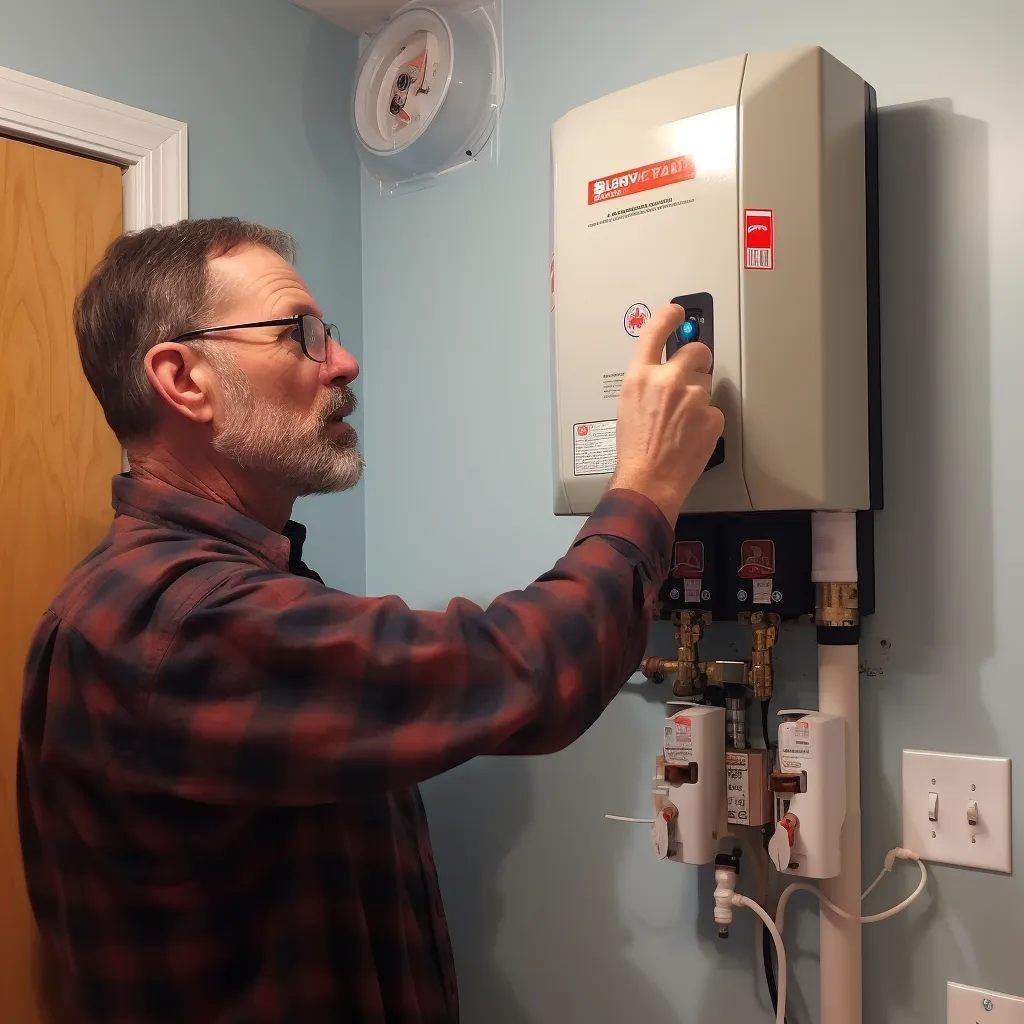
Hiring a professional vs DIY installation of a water heater
With water heater installation, many homeowners are faced with the decision of whether to hire a professional or attempt a DIY installation. While the allure of saving money may be tempting, there are several compelling reasons why hiring a professional is the better choice. First and foremost, professionals have the knowledge and experience necessary to ensure a safe and efficient installation. They are familiar with the intricacies of water heater installation and can easily navigate any unexpected challenges that may arise. DIY installation, on the other hand, can lead to costly mistakes or even dangerous situations if not done correctly. In addition to their expertise, professionals have the necessary tools and equipment to complete the installation properly. Water heaters can be heavy and complex, requiring specialized tools that most homeowners do not possess. By hiring a professional, you can avoid the hassle of purchasing or renting equipment and instead rely on their expertise and resources to get the job done right. Furthermore, hiring a professional can save you time and frustration. Installing a water heater can be a time-consuming process, especially for individuals without experience in plumbing or electrical work. A professional, on the other hand, can efficiently install your water heater, allowing you to focus on other aspects of your life. Finally, hiring a professional can provide peace of mind. Knowing that your water heater has been installed correctly can alleviate concerns about potential leaks or malfunctions.
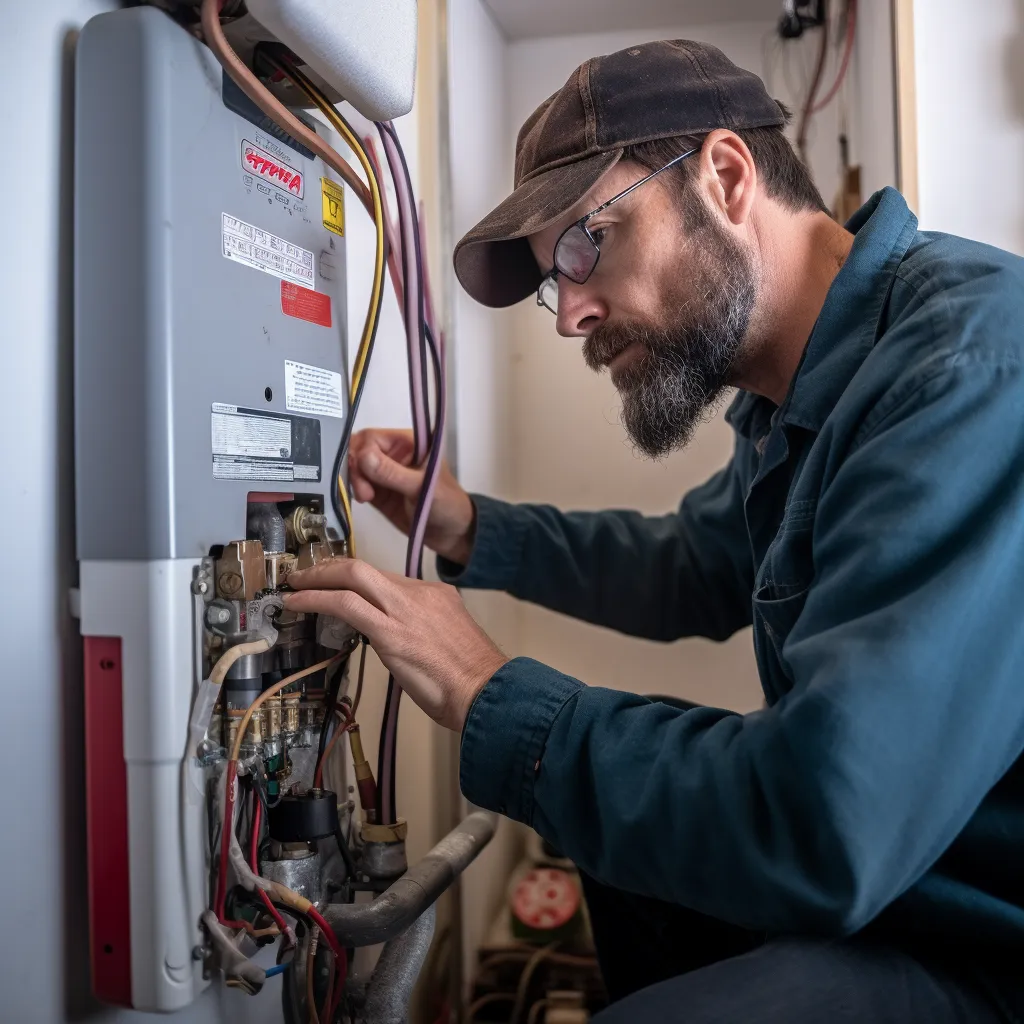
Tips on finding a water heater professional
Installing a water heater is a complex task that requires the expertise of a professional. Here are some tips to help you find a water heater professional for installation:
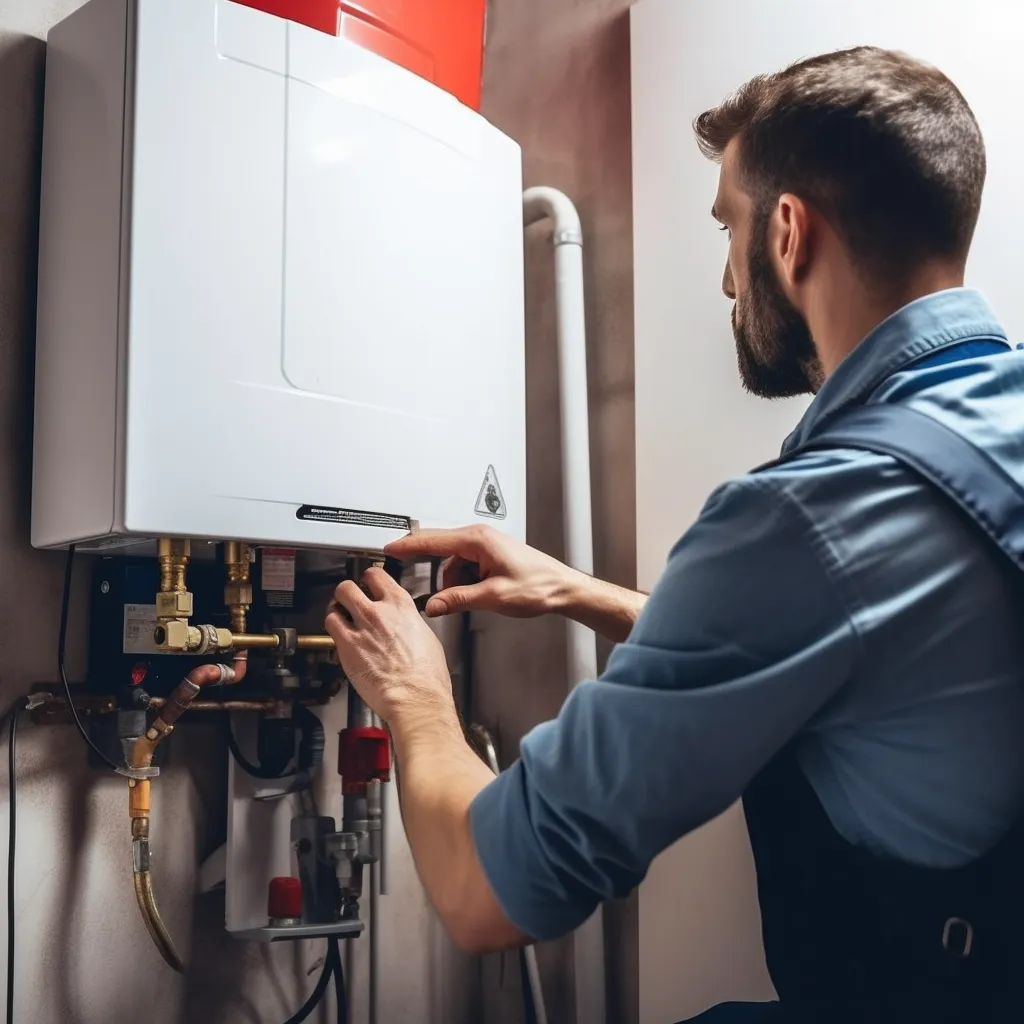
Ask for recommendations: Seek advice from friends, family, and neighbors who have recently had a water heater installed. Their first-hand experiences can provide valuable insights into finding a reliable professional.
Research online: Utilize search engines and review websites to find water heater professionals in your area. Look for companies with positive customer reviews and high ratings, as this can indicate their reliability and quality of service.
Check for licenses and certifications: Ensure that the professionals you consider are licensed and certified to perform water heater installations. This ensures that they have the necessary training and expertise to complete the job safely and efficiently.
Obtain multiple quotes: Contact several water heater professionals and request detailed quotes for the installation. This will help you compare prices and ensure that you are getting a fair and competitive rate.
Assess experience and specialization: Inquire about the experience and specialization of the professionals you are considering. Look for those who have extensive experience in installing water heaters and are knowledgeable about different types and brands.
Seek warranties and guarantees: Inquire about warranties and guarantees provided by the water heater professional. A reputable professional will offer guarantees on their workmanship, as well as warranties on the water heater itself.
Ask about permits and inspections: Check if the water heater professional will obtain the necessary permits and arrange for inspections as required by local regulations. This ensures that your installation meets all safety and building code requirements.
Consider energy efficiency: If you are looking to save on energy costs, inquire about the professionals' knowledge and expertise in installing energy-efficient water heaters. They should be familiar with the latest technology and options available in the market.
Check insurance coverage: Verify that the water heater professional has adequate liability insurance. This protects both you and the professional in case of any accidents or damage that may occur during the installation process.
Trust your instincts: Ultimately, trust your instincts when selecting a water heater professional. Choose someone who communicates effectively, listens to your concerns, and provides satisfactory answers to all your questions.
Contact Us
GET IN FULL TOUCH
PHONE: (984) 223-8754
EMAIL:
david@waterheatersinraleigh.com
Almighty Plumbing
Raleigh, NC 27602
